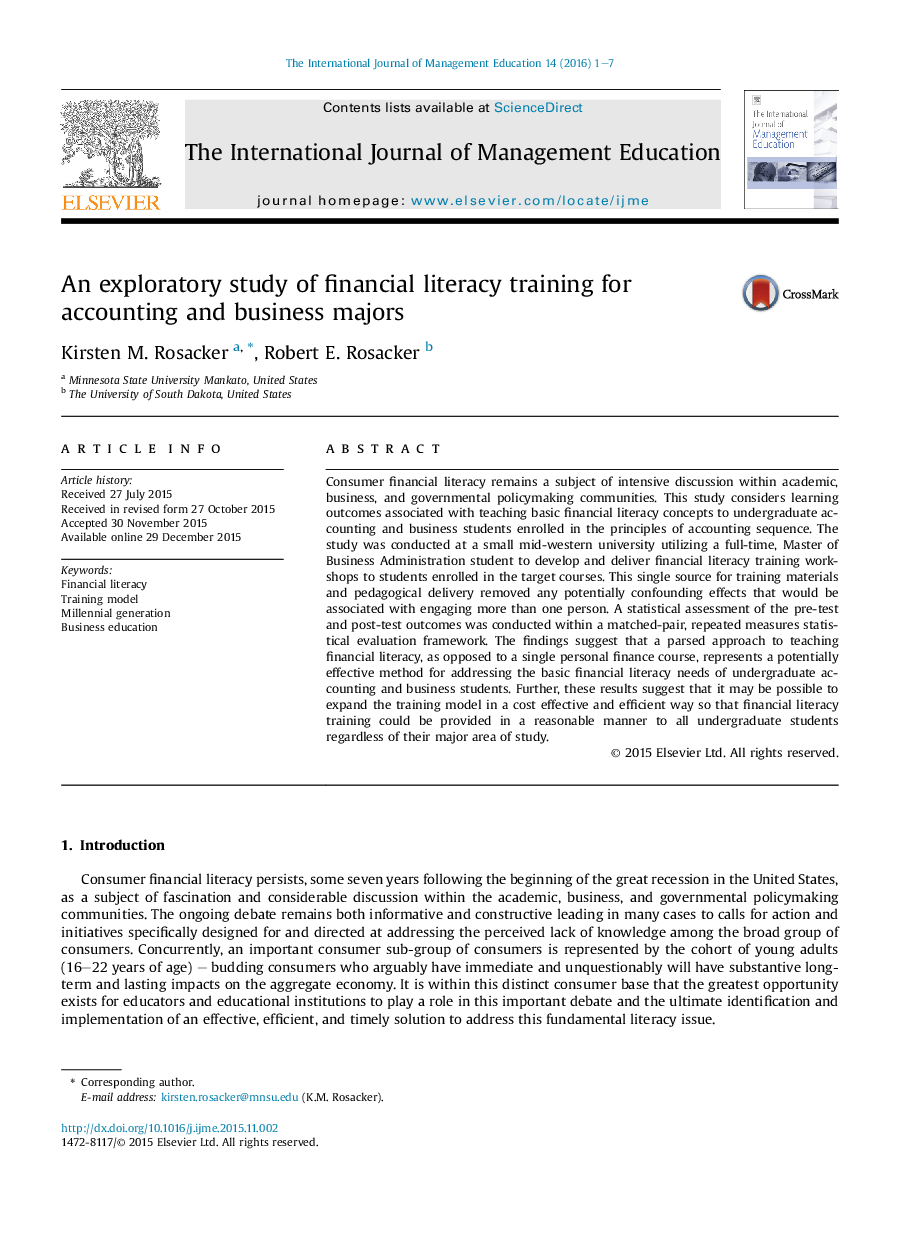| Article ID | Journal | Published Year | Pages | File Type |
|---|---|---|---|---|
| 357348 | The International Journal of Management Education | 2016 | 7 Pages |
•A financial literacy-training model for business students is proposed and assessed.•The training model is limited in duration and cost effective.•Empirical findings indicate that the training had a positive impact on student knowledge.
Consumer financial literacy remains a subject of intensive discussion within academic, business, and governmental policymaking communities. This study considers learning outcomes associated with teaching basic financial literacy concepts to undergraduate accounting and business students enrolled in the principles of accounting sequence. The study was conducted at a small mid-western university utilizing a full-time, Master of Business Administration student to develop and deliver financial literacy training workshops to students enrolled in the target courses. This single source for training materials and pedagogical delivery removed any potentially confounding effects that would be associated with engaging more than one person. A statistical assessment of the pre-test and post-test outcomes was conducted within a matched-pair, repeated measures statistical evaluation framework. The findings suggest that a parsed approach to teaching financial literacy, as opposed to a single personal finance course, represents a potentially effective method for addressing the basic financial literacy needs of undergraduate accounting and business students. Further, these results suggest that it may be possible to expand the training model in a cost effective and efficient way so that financial literacy training could be provided in a reasonable manner to all undergraduate students regardless of their major area of study.
